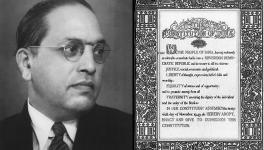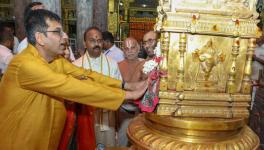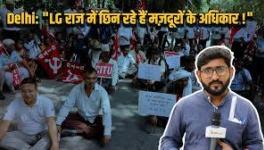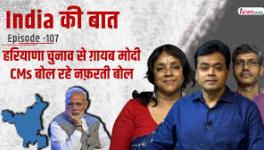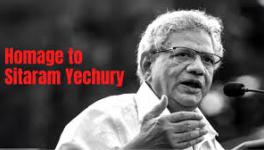Rafale Case: How The AG Scored a Self-Goal on Modi Sarkar
Honourable legal eagles like M.C. Setalvad, Niren Dey, Ashok Desai, Soli Sorabjee have decorated the post of Attorney General in the past by their knowledge and experience. They had the courage to stand up to the authorities.
The Narendra Modi government’s Attorney General, K.K.Venugopal, may be an intelligent lawyer, but he is certainly a misfit in the great tradition of India’s Attorney Generals. His recent flip-flops on Rafale’s secret documents are not only a disgrace, but a self-goal for the government. It exposes his, as well as the government’s lack of integrity.
Last week, on March 6, 2019, during the hearing of Rafale review petition in the Supreme Court, AG Venugopal made a shocking statement. He claimed that secret documents of Rafale deal were stolen from the Defence Ministry, reason enough for the Supreme Court to not consider them, as it would be a breach of the Official Secrets Act, he asserted. To the utter disbelief of all those present in the court of the Chief Justice, he further declared that the government was contemplating legal action against the newspapers that published these documents.
Obviously, the AG’s argument was the news of the day. The Opposition grabbed this opportunity to attack Modi Sarkar once again. Journalists’ organisations condemned the threat to the media and expressed solidarity with The Hindu newspaper and N Ram who had published a series of articles on these documents. Once again, after two weeks, Rafale had come to the centrestage, replacing the Indo-Pakistan stand-off.
But within 48 hours, the Attorney General made a U-turn and contradicted his own statement before the Supreme Court. “The documents were not stolen, what I meant was they were photocopied by the petitioners,” was his clarification.
The Attorney General advises the government on legal issues. He is supposed to speak the truth before the court and uphold the dignity of his office. Is the government pressuring him? Did he lie to save the government? Did he backtrack because of the backlash on his initial argument? The AG’s retraction leaves one with more questions than answers.
Prima facie, the Attorney General’s ‘stolen documents theory’ seems to be concocted. The defence minister has addressed numerous press conferences on the Rafale issue in the past six months. Never did she mention the stolen or lost files. Generally, an FIR is registered if an important government file is lost. But there was no police complaint or FIR about these secret files.
But the Modi government rarely takes questions from media. This fiasco proves why. The AG came to the rescue of the Modi government by twisting his own statement. It would be interesting to see how Supreme Court bench reacts to this development. In fact, wittingly or unwittingly, the Attorney General has admitted that the documents revealed by The Hindu were authentic.
It is clear that government is afraid of the new evidence brought out by senior journalist N Ram in his five articles in The Hindu. These documents clearly exposed the Prime Minister’s Office’s interference in the Rafale negotiations, to which defence officials had objected. They also underlined the loopholes in the new contract initiated by PM Modi. The series of articles were a solid takedown of the government. Obviously, the government didn’t want the Supreme Court to consider this new evidence. In the process, the Attorney General sited Official Secrets Act, RTI and Whistleblowers Act to defend the confused Defence Ministry and made a fool out of himself.
Contrary to this, N Ram’s defence after the AG’s threat was solid and graceful. He refused to divulge his sources in true journalistic spirit. “We have not stolen the documents, nor paid for it,” he responded in an interview with The Wire, ‘We are fully protected by Article 19(1)(a) of the Indian constitution – the fundamental right to freedom of expression. We are also protected by section 8(a)(1) and 8(2) of the Right to Information Act which has overtaken the Official Secrets Act of 1923 – that’s what I have been legally advised.’ Attorney General Venugopal is experienced enough to know this. Through him, the government has only tried to send a signal to the rest of the media.
After misleading the Supreme Court through sealed envelopes during the first hearing, the government has now sought refuge in an archaic law to stall the investigation. Various governments have used this outdated Official Secrets Act of 1923 to cover up its corruption. PM Modi always boasts of transparency in his governance. But the Rafale deal seems to be an exception, where he is keen on hiding something. Venugopal has pushed Modi’s agenda by his unbecoming behaviour
Will the Rafale scam be an important issue in the Lok Sabha election once again? It depends upon the proceedings in the Supreme Court and how the Opposition conveys it on the ground. Like 2014, corruption is not the top issue this time, as Modi has been successful in projecting himself as a no-nonsense leader. But unemployment and the agrarian crisis are close to people’s hearts. After Pulwama and Balakot, national security is the newest addition to the list. The Bharatiya Janata Party (BJP) will definitely try to take advantage of war hysteria. It is now up to the Mahagathbandhan (Grand Alliance) to use the perception crisis around Rafale effectively in its campaign. Eventually, it is the election results that will show whether the Opposition succeeds or not.
Get the latest reports & analysis with people's perspective on Protests, movements & deep analytical videos, discussions of the current affairs in your Telegram app. Subscribe to NewsClick's Telegram channel & get Real-Time updates on stories, as they get published on our website.














